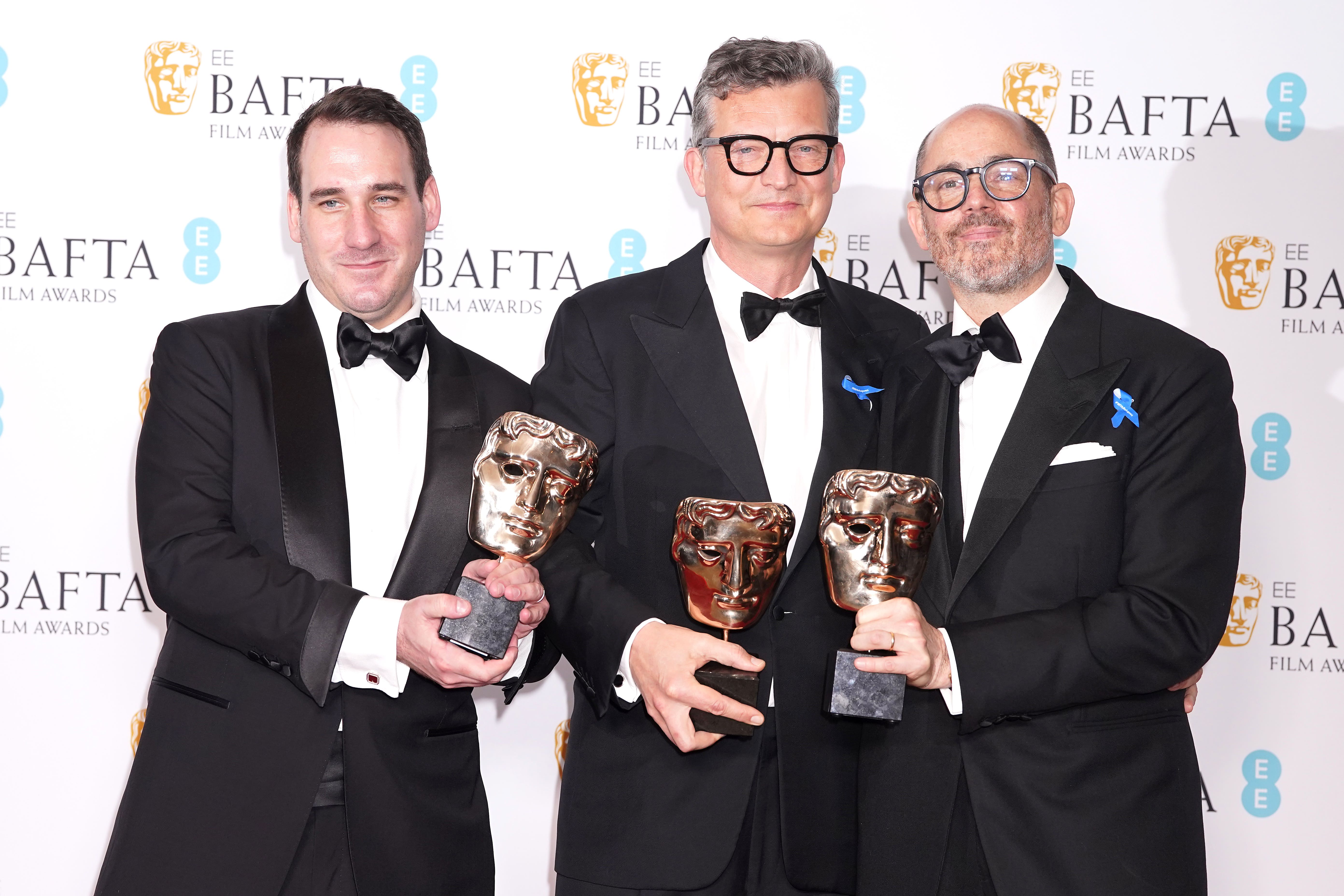German language film All Quiet On The Western Front storms the Baftas
It was a disappointing night for Martin McDonagh’s The Banshees Of Inisherin.

German language film All Quiet On The Western Front was the big winner at the EE Bafta film awards, scooping a total of seven prizes.
The Netflix anti-war epic, directed by German filmmaker Edward Berger and based on the 1929 novel of the same name by Erich Maria Remarque, scooped top gongs including best film and best director.
It broke the record for the highest number of Baftas for a foreign language film previously held by Italian coming-of-age drama Cinema Paradiso, which claimed five in 1988.
Taking to the stage at the climax of the event at London’s Royal Festival Hall, cinematographer James Friend said the film showed how a generation of young German men were “poisoned by right-wing nationalistic propaganda” and he stressed that the film’s message remains “relevant” nearly a century on.
Berger paid tribute to those fighting in Ukraine and also told the audience he was able to get over his “doubt” thanks to his daughter Matilda who had encouraged him to film the book she was reading at school.
It was a disappointing night for The Banshees Of Inisherin which had 10 nominations but emerged with only four wins.
However, these included best supporting actor and supporting actress for the film’s Irish stars Barry Keoghan and Kerry Condon respectively.
Baz Luhrmann’s biopic Elvis also secured four wins, with its star Austin Butler beating favourite Colin Farrell to the best actor gong in a shock decision from the voting academy.
Farrell, who took the starring role in dark comedy Banshees, had been in contention for his first leading actor Bafta in his 25-year career.
Accepting the prize on stage, Butler thanked the Presley family for their involvement in the film, saying: “I cannot thank you enough for your love… this means the world to me.”
Everything Everywhere All At Once had an even more disappointing night, securing only one Bafta – for best editing – out of 10 nominations.
It was also a lacklustre night for British veterans behind the scenes.
Sir Roger Deakins missed out on best cinematography for Empire Of Light while Jenny Beavan failed to secure the gong for costume design for Mrs Harris Goes To Paris.
Bill Nighy lost out to Butler in the leading actor category for his performance in Living.
The Bafta for leading actress went to Cate Blanchett for her role as a conductor facing misconduct claims and psychological conflict in Tar.
Tearfully, she accepted the award as she thanked her mother and her director Todd Field, adding that 2022 had been an “extraordinary year for women”.
The Australian actress said the past 12 months had broken down the idea that women’s experiences are not “monolithic”, adding that her role as Lydia Tar “was a dangerous and career-ending potential undertaking”.
Last year’s rising star award winner, No Time To Die actress Lashana Lynch, presented this year’s trophy to Emma Mackey.
Mackey was encouraged to the stage by her smiling Sex Education co-star Aimee Lou Wood, who also received a nomination in the category.
Earlier in the night, Carey Mulligan was incorrectly announced as the winner of the supporting actress award after a translation error while deaf actor Troy Kotsur was presenting.
Oscar-winner Kotsur was delivering the announcement by sign language before a miscommunication resulted in Mulligan’s name being said for her performance in She Said.
The announcer quickly corrected themselves and said Condon was the winner for Banshees of Inisherin.
Taking to the stage, Condon paid tribute to her director McDonagh, adding: “Thank you for all the parts you gave me throughout my career. You make me so proud to be an Irish woman.”
She also thanked the “amazing cast” and her family, as well as her horses and dogs.
Ceremony host Richard E Grant joked later that he had a defibrillator for Mulligan after the shock of her name being called and then changed.
The mistake did not feature in the final broadcast on BBC One, which aired slightly behind the ceremony until the final four awards.
The Boy, The Mole, The Fox And The Horse by Charlie Mackesy won the Bafta for best British short animation.
Mackesy praised those involved in the adaptation of his illustrated book and hailed those who strive to be “kind” and “brave” in life.
Best costume design went to Catherine Martin for the biopic Elvis, with her husband, the film’s director Baz Luhrmann, accepting in her place.
The Bafta for documentary went to Navalny, while Guillermo del Toro’s Pinocchio won the Bafta for animated film.
Jamie Lee Curtis and Anya Taylor-Joy presented the outstanding debut by a British writer, director or producer to Charlotte Wells for Aftersun.
Singer-songwriter Joan Armatrading also made a surprise performance on stage alongside Little Simz.
Bookmark popover
Removed from bookmarks